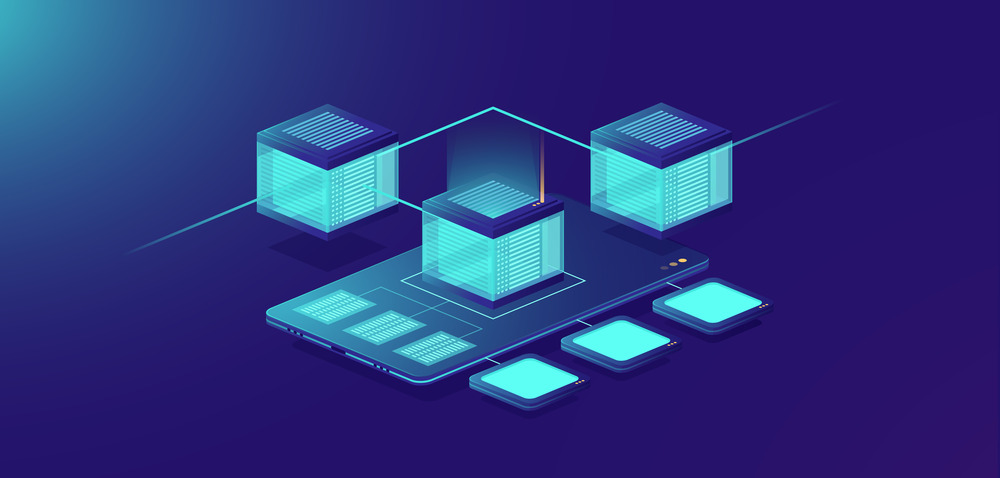In the ever-evolving landscape of Information Technology (IT), few innovations have generated as much excitement and potential as blockchain technology. But do you really understand what it is?
Blockchain is basically a kind of non centralized and distributed ledger technology that emerged as the base and backbone of cryptocurrencies, also known as the Bitcoin.
At its core, a blockchain can be explained in simple words as a chain of blocks, where each block contains a list of digitalized monetary transactions. These transactions are done by digital money and are linked together using cryptographic hashes, forming a secure and immutable chain of transactions. Blockchain has transcended its cryptocurrency origins to emerge as a revolutionary force in reshaping the foundations of IT services. The decentralized nature of blockchain makes sure no single entity dominates controlling the entire network, providing transparent, clear, secure and trusted digital transactions.
Blockchain, however, is known to distribute data all across the world by using network, reducing the risk of cyberattacks to an extent making it secure and enhancing system resilience but this approach is specifically more valuable in sectors such as finance, healthcare, and supply chain management businesses.
Enhancement of Security and Data Integrity:
Blockchain’s advanced cryptographic features contribute to a satisfyingly high level of security in Information technology services. Each block in the chain is linked to the previous block through a precisely and perfectly secure hash, creating a chronological and everlasting record. This makes it extraordinary and just as challenging for the malicious hackers and attackers to alter historical data, ensuring data privacy and integrity and reducing the risk of fraud to a safe level.
In financial services, the blockchain module has transformed the way humans perform transactions. It has made possible to use digitized way of transactions swiftly and allowing individuals to hold and make smart and self-executing contracts with the terms of the agreement directly written into the form of coding, automating and enforcing contractual obligations without human intervention. This not only reduces the need for intermediaries but also minimizes reducing the amount of bugs ,risks errors and disputes that are possible to occur otherwise
Streamlining and Helping in Supply Chain Management:
Blockchain’s crystal clear and distributed working nature has become extremely beneficial in the field of supply chain management. It allows us to trace and track goods and become an advantageous resource that has made maintaining track of supplies and its management seamless and easy.
The technology enables end-to-end visibility and moving of goods through the supply chain. Each transaction, designed to be saved on a block from manufacturer to distributor and the records are smartly kept through blockchains, providing a way which is easy to verify, track and keep using the history of transactions it stores in the product’s moving journey. This transparency helps in mitigating issues such as counterfeit products and ensures the authenticity of the supply chain.
Tokenization and Buying of Digital Assets:
Blockchain encourages and allows us to buy and keep digital assets through a process known as tokenization. In the process of tokenization the sensitive data is sent to a system which replaces the sensitive information with unique identifiers and tokens. It helps us create and represent real world assets of which include real estate buildings and lands, artworks and much more in the form of digital tokens with the help of block chain.
Tokenization not only enables fractional ownership but also enables liquidity of the assets and accessibility to a broader range of investors. This can be implied not only for the financial industry but also for various asset-based sectors, which are basically serving as a way of potentially revolutionizing how we perceive, create and trade assets in a smart and efficient way.
Cross-Border Transactions and Payments:
Blockchain is also advantageous because it has really made the transactions easy across the borders seamless and swift.
Traditional methods of transactions in businesses involve multiple intermediaries and can take days to settle however on the contrary, blockchain has made the transactions from any corner of the world happen with much speed and saving time, also ensuring cost- effectiveness.
Making payments is now, no more a hassle in this digital era ever since blockchain transactions have facilitated us making our lives easy. Blockchain enables near-instantaneous transactions with no fees, making it a disruptive force in the financial services sector.
These are just a few advantages that highlight the impact of blockchain for supply chain management and how it benefits us as we stand at the forefront of this technological revolution. However the full extent of blockchain’s impact is yet to be realized and Our team at Tech blinders is happy to provide these services to you promising a future where trust, transparency, and efficiency reigns supremacy in the realm of Information Technology innovating supply chain management businesses forever.

